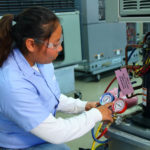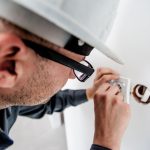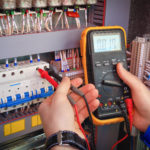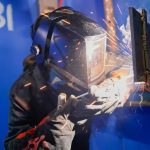The HVAC industry looks to hire quality, skilled employees who possess the skills and worksite safety knowledge to perform the job. This profession provides services to residential and commercial properties. HVAC services are designed to regulate temperature and air quality, which not only impact the comfort of a building but also ensure safety.
A great way to develop HVAC technician skills is through a comprehensive training program. Comprehensive training involves both classroom instruction as well as hands-on experience and a well-rounded education that provides clarity into the real-life demands and expectations of this industry. Knowing the skills can help individuals understand the benefit of comprehensive training.
Skills to Be an HVAC Technician
An HVAC technician should have a variety of skills to set them up for success in the industry. These skills can be developed through a quality training program. Having a firm grasp of these skills helps to provide the best chance of long-term success. These skills include both technical skills as well as practical ones, such as:
- Problem-solving. One of the biggest appeals, as well as one of the biggest challenges of this profession, is the ability to problem-solve different issues daily. Troubleshooting is one of the most important skills for someone in the HVAC industry. The ability to identify an issue quickly and successfully is key to ensuring the satisfaction of a client. Problem-solving also involves the ability to assess and adapt to situations as they come. Especially with this type of career, technicians may think they are dealing with one kind of issue only to uncover it is something else entirely. Thinking on your feet is vital in this field.
- Communication. This is an important skill to master for those interested in the HVAC industry. Technicians should be able to communicate in a way that is clear, effective, and calm. In many instances, they will be working with clients who may be stressed due to problems with their HVAC systems. Technicians should also understand that the customer’s level of knowledge about their systems often won’t compare to theirs. Information should be communicated clearly and explained in a way that a client can understand. Clear communication ensures that your clients are comfortable and confident in your abilities.
- Time management. It is not uncommon for HVAC technicians to receive multiple calls a day for their services. Staying organized and prioritizing your tasks is part of the daily routine for HVAC techs. Customer satisfaction plays an important role in this field. Clients should be able to trust that the technician will get the job done correctly within a reasonable time frame.
- Working with equipment. It is vital to not only understand how various types of systems and equipment work, but the ability to handle the physical demands of working on the equipment. Working as an HVAC technician can be physically demanding. Equipment is usually bulky and heavy and proper placement and installation, often in small spaces is part of the job.
What Makes a Good HVAC Technician?
When it comes to being an HVAC technician, there are various skills that may help you succeed. A good technician possesses the knowledge to effectively problem-solve issues for a variety of systems. Diagnosing and repairing issues quickly can help with time management, ensuring that the technician can get to their next client quickly. Clear communication is essential in providing peace of mind to clients who just want their issues resolved. If you are someone who loves to face new challenges and experiences regularly, a career in HVAC services is a great fit.
Get Started at Arizona Automotive Institute
Arizona Automotive Institute provides a comprehensive HVAC program designed to provide the skill set a quality technician typically possesses. Our program provides hands-on experience guided by instructors with professional experience in the industry. The combination of classroom learning and real-life situations is designed to equip you with the tools and skills to succeed.
Information within this blog is for general information purposes only. AAI does not assume or guarantee certification/licensures, specific job/career positions, income earning potential or salary expectations based on the programs offered at AAI. Career and program information statements in this blog do not guarantee that programs or other information mentioned are offered at AAI.





